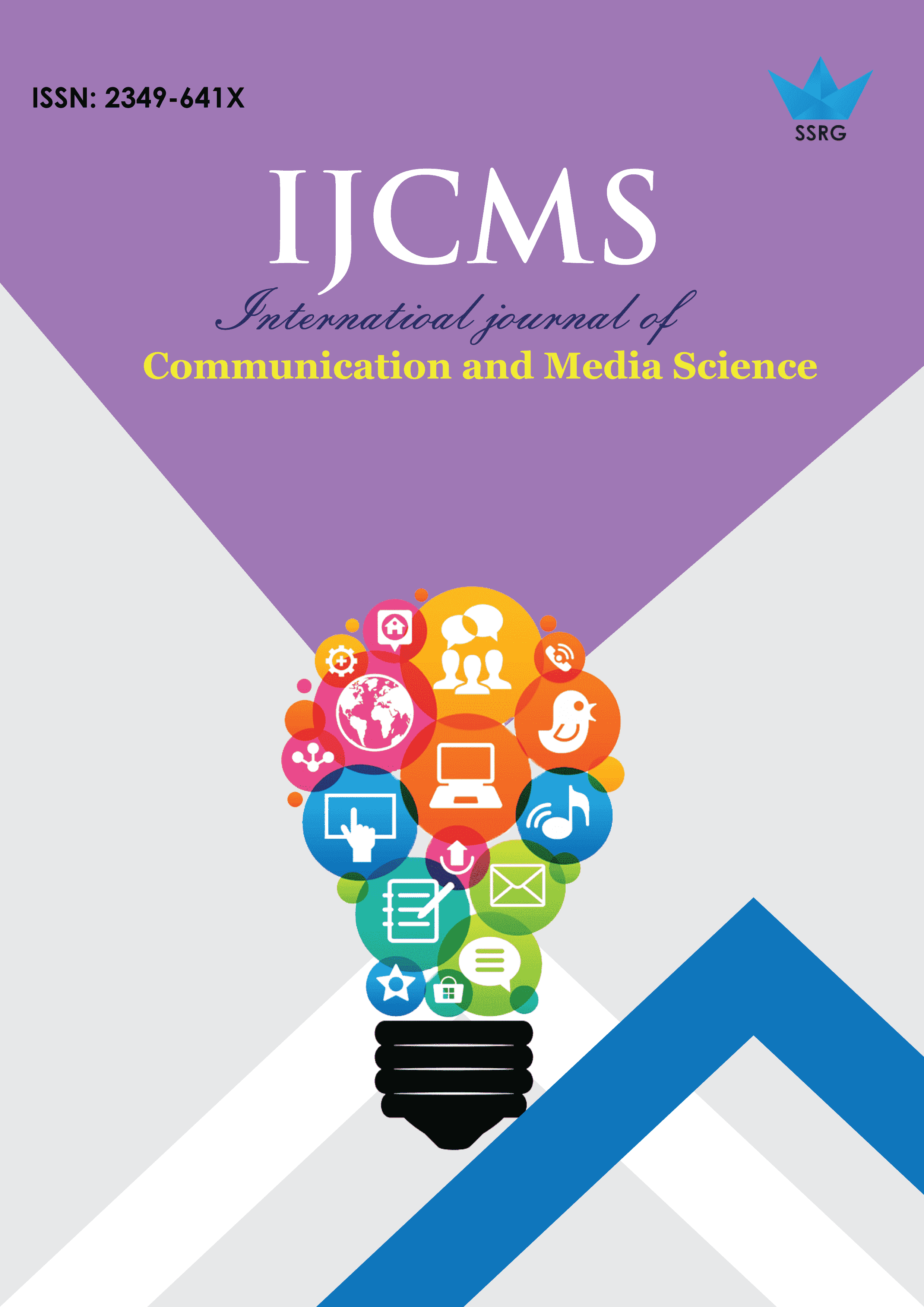Facebook and CSR: A Content Analysis of Simulated Development on Brand Pages of Facebook

| International Journal of Communication and Media Science |
| © 2016 by SSRG - IJCMS Journal |
| Volume 3 Issue 2 |
| Year of Publication : 2016 |
| Authors : Sunhith Ivalla V and Suchitha B |
How to Cite?
Sunhith Ivalla V and Suchitha B, "Facebook and CSR: A Content Analysis of Simulated Development on Brand Pages of Facebook," SSRG International Journal of Communication and Media Science, vol. 3, no. 2, pp. 15-17, 2016. Crossref, https://doi.org/10.14445/2349641X/IJCMS-V3I3P102
Abstract:
Social Media has become a powerful tool for corporate industries to engage with their stakeholders. Communication experts constantly explore the potentials of social media in order to make the best out of these media forms. In order to achieve visibility the communication divisions of the corporate world upload content on a regular basis to make their online presence felt. The nature of content varies from organizational information to stories that concern the community they function within. This study looks at the content uploaded on Facebook in the form of pictures and textual updates looking for an assessment of the process of simulation of social issues using the concepts of signification and simulation given in Baudrillard's concepts of simulation. The ways in which brands take up the responsibility of social discourse production will be deconstructed and analyzed to assess and predict the effect of the content.The study will choose the top five brands of the year 2014 and deconstruct the content for messages with any form of social relevance and then categorize it to first order (signification), second order (reproduction), and third order (simulation). And look at the level of social discourse production the corporate sector takes up as a social responsibility.
Keywords:
CSR, Brand identities, Baudrillard, Simulation, Reproduction, Signification.
References:
[1] Bonacchi, M. (n.d.). Corporate Social Responsibility: Readings and Cases in a Global Context. European Accounting Review, 641-644.
[2] Charlesworth, A. (2014). Social Networks and Online communities. In Digital marketing: A practical approach (Second ed., Vol. 1, p. 306). New York: Routeledge.
[3] Christensen, L., Peirce, E., Hartman, L., Hoffman, W., & Carrier, J. (2007). Ethics, CSR, and Sustainability Education in the Financial Times Top 50 Global Business Schools: Baseline Data and Future Research Directions. J Bus Ethics Journal of Business Ethics,73, 347-368.
[4] Laughey, D. (2007). Baudrillard: Hyperreality and simulation. In Key themes in media theory (2nd ed., Vol. 1, pp. 148-151). Maidenhead: Open University Press.
[5] Zu, L. (2009). CSR models. In Corporate social responsibility, corporate restructuring and firm's performance empirical evidence from Chinese enterprises (1st ed., p. 21). Berlin: Springer.
[6] https://www.facebook.com

 10.14445/2349641X/IJCMS-V3I3P102
10.14445/2349641X/IJCMS-V3I3P102